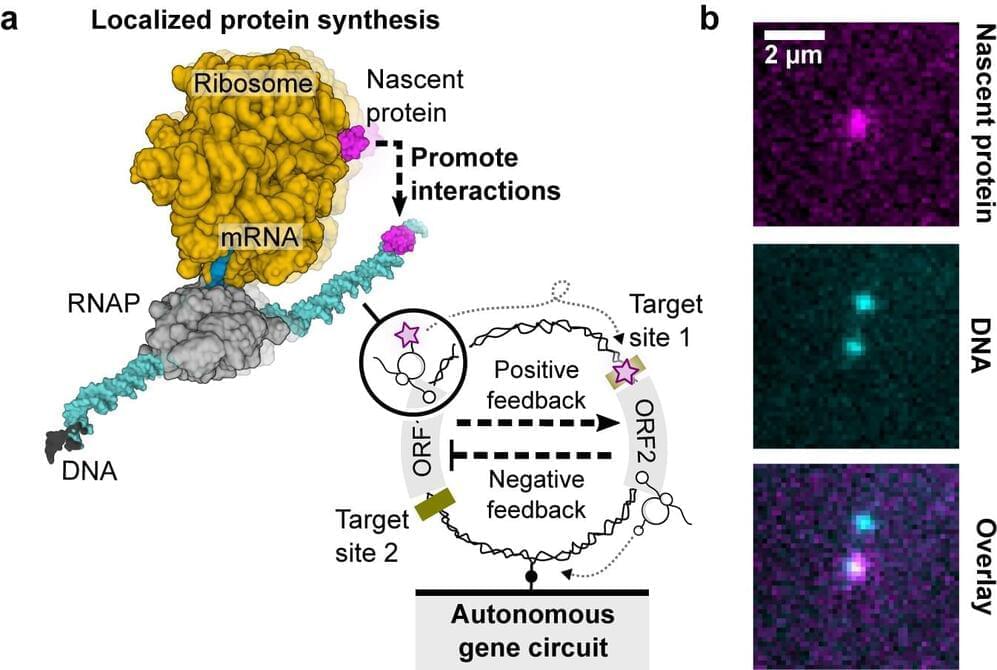In a new Nature Communications study, researchers have explored the construction of genetic circuits on single DNA molecules, demonstrating localized protein synthesis as a guiding principle for dissipative nanodevices, offering insights into artificial cell design and nanobiotechnology applications.
The term “genetic circuit” is a metaphorical description of the complex network of genetic elements (such as genes, promoters, and regulatory proteins) within a cell that interact to control gene expression and cellular functions.
In the realm of artificial cell design, scientists aim to replicate and engineer these genetic circuits to create functional, self-contained units. These circuits act as the molecular machinery responsible for orchestrating cellular processes by precisely regulating the production of proteins and other molecules.










Comments are closed.